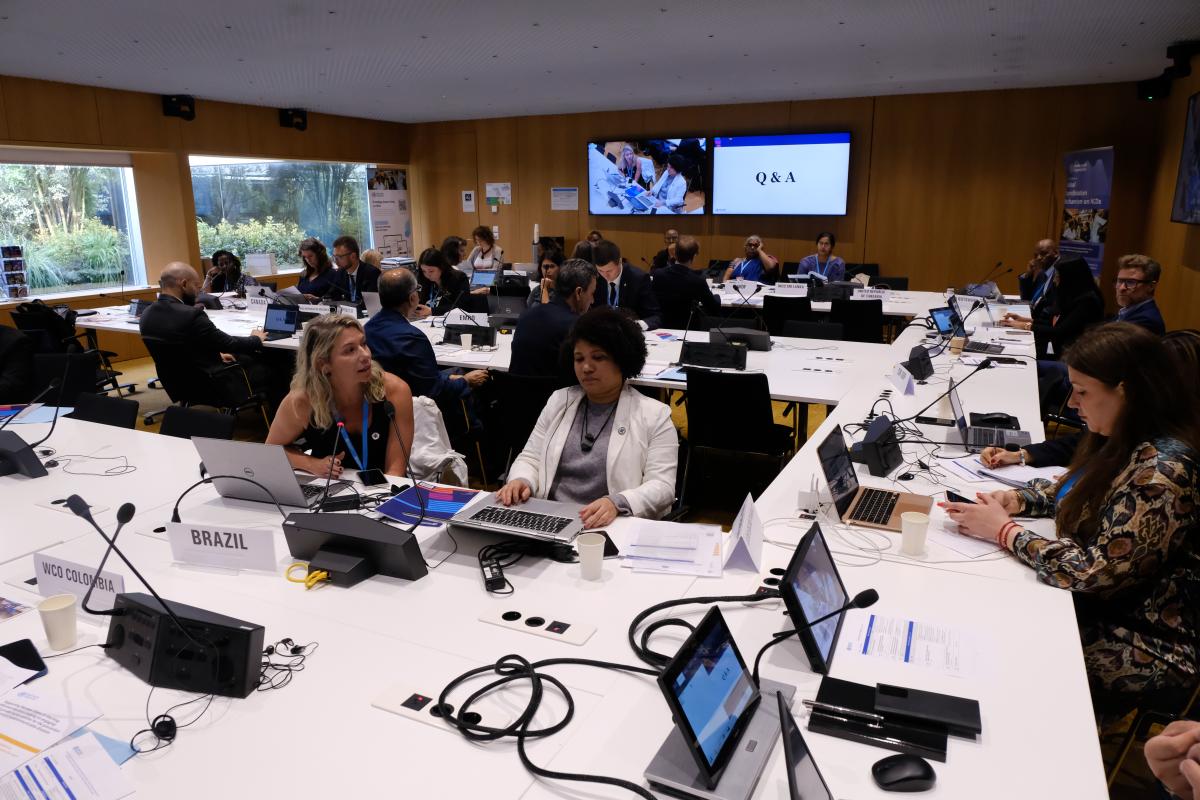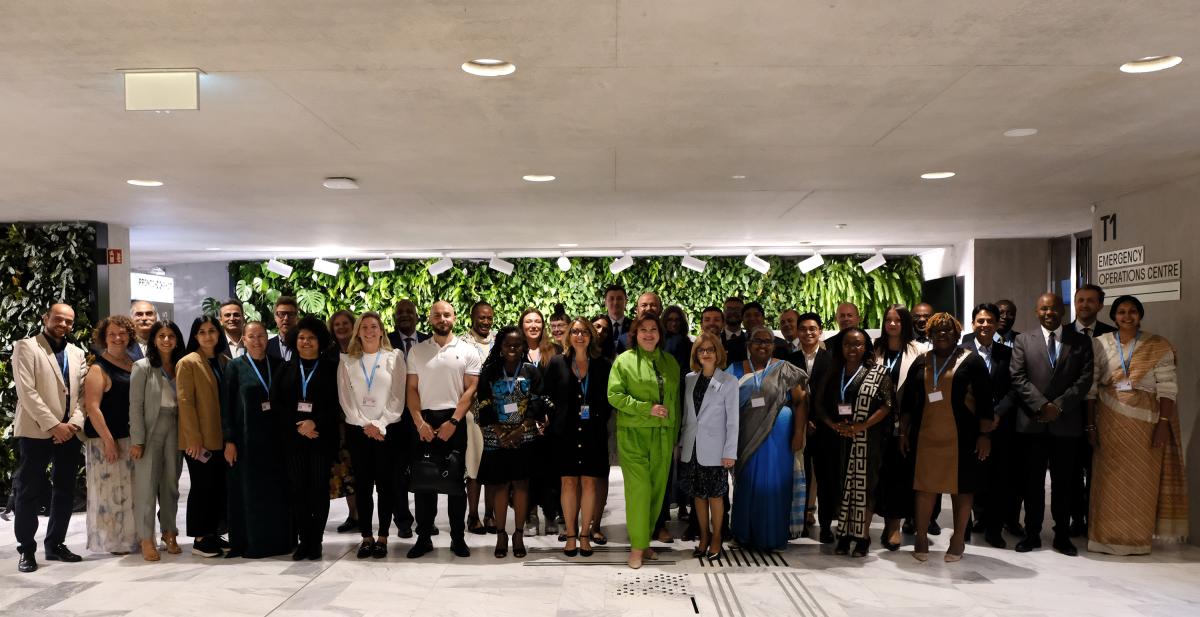WHO
The silent killer: why chronic respiratory disease deserves global attention
Multisectoral Action
25 Nov 2024
World Health Organization | 07 Jun 2024
Representatives from more than 20 Member States, World Health Organization (WHO) regional and country offices and civil society organizations participated in a two-day technical meeting on implementing multisectoral and multistakeholder collaboration on noncommunicable diseases (NCDs) and mental health conditions in Geneva this week.
Introducing two brand-new technical publications – a compendium report and country case study collection on multisectoral government action, and a practical tool supporting Member States in informed decision-making before engaging with private sector entities – the meeting charted new implementation pathways for countries to advance coherent and integrated policies and programmes addressing NCDs.
The meeting was hosted by WHOs Global NCD Platform and Global Coordination Mechanism on NCDs, as part of the preparatory activities for the upcoming fourth high-level meeting of the General Assembly on the prevention and control of NCDs (4HLM) in 2025.
WHO’s recently released compendium report on multisectoral actions offers key insights and lessons in how countries can leverage multisectoral collaboration and achieve better health outcomes to address NCDs. Close collaboration and joint action of government sectors are a crucial linchpin to responding to the major global health and equity challenges posed by NCDs, their risk factors and determinants of health.
In 17 country case studies from all six WHO regions and covering a wide array of NCD and mental health challenges, the report analyses key enablers and major barriers along four strategic pillars of multisectoral action: governance and accountability, leadership at all levels, the practical aspects of collaborating, and resources and capabilities.

The first day of the technical meeting was dedicated to operationalizing lessons from the new Compendium report, identifying implementation opportunities and addressing capacity gaps. Participants discussed the challenges of sustaining national multisectoral policy mechanisms through times of political instability, a change of government, and amid financial resource constraints. Several Member States highlighted training and capacity building needs at country, sub-national and local levels, and reflected how collaboration can be cascaded down from national to municipal levels or amplified with the help of civil society organizations and people living with NCDs.
“Exchanging country case studies in implementing multisectoral NCD programmes supports our discussions and political negotiations at national level. We encourage and welcome a more regular exchange of data, lessons, good practices and success stories between countries.“
Shrianee Wickramasinghe, Deputy Director General Noncommunicable Diseases, Sri Lanka
The second meeting day looked at engaging non-State actors, including civil society, individuals with lived experience, academia, and the private sector, to prevent, reduceand mitigate harmful practices and products and ensure such engagements improve health and well-being for all.
WHO’s new Decision-making tool on private sector engagements for NCDs presents health authorities and other government sectors with a systematic methodology to assess the need and local capacity for considering engagement with private sector entities to address NCD challenges, analyse specific opportunities of engagement and conduct rigorous due diligence and risk assessment processes and risk mitigation strategies, as well as decide on whether or not to engage based on estimated benefits, assessed risks and possible mitigation strategies.
"There is considerable, untapped potential in engaging with the broad range of non-State actors, including the private sector. Yet, health-harming industries have a long and documented history in maximizing profit in detriment of public health outcomes and masking undue influence. Civil society provides a countervailing voice and evidcenced-based resources calling out tactics and methods of health harming industries.”
Alison Cox, Policy and Advocacy Director, NCD Alliance
With inputs from a multistakeholder expert panel, meeting participants reflected on how governments can ensure private sector contributions support health outcomes, while reducing, preventing and mitigating limited compliance with public health policies and regulations and managing risks including conflicts of interest and undue influence. Short case studies with insights on private sector engagement from WHO initiatives addressing economic and commercial determinants of health, good governance for health, integrated service delivery, and Public Health Law and Policies complimented the day.
With country and civil-society feedback from the technical meeting, WHO will continue to support Member States in strengthening multisectoral and multistakeholder collaboration at country level. A series of country capacity-building workshops and in-depth evaluation of governance mechanisms is currently being planned by the GCM/NCD Secretariat.
The WHO practical tool on reaching informed decision-making on engaging with private sector entities for the prevention and control of noncommunicable diseases is currently being finalized for publication and will be available online shortly. An interactive, digital version of the user questionnaires and additional country workshops to support the rollout of the tool and assess further capacity-building needs are also planned.

Participants of the two-day technical meeting hosted by the GCM/NCD at WHO headquarters in Geneva. Photo: WHO/Samuel Sieber